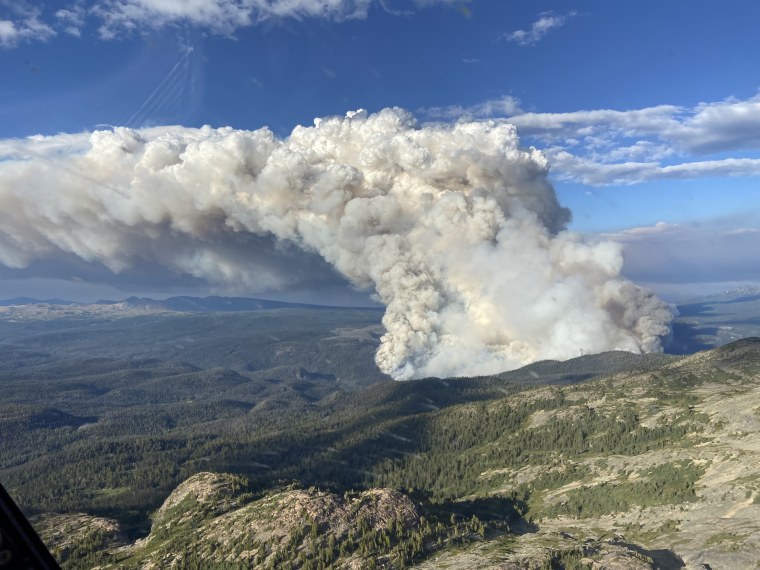begin quote from:
https://www.nbcnews.com/science/environment/seven-countries-met-air-quality-guidlines-not-us-rcna143940
Seven countries met the WHO's air quality guidelines — and the U.S. and Canada aren't among them

Just seven countries met World Health Organization guidelines for air pollution last year, as continued reliance on fossil fuels and climate change repercussions continue to dog human health, according to a report published Tuesday by IQAir, a Swiss air quality-monitoring company.
Bangladesh, Pakistan and India had the most polluted air, with levels of particle pollution at least 10 times what the World Health Organization suggests, the company said. More than 92% of the countries and regions analyzed exceeded guidelines for particulate pollution, including the U.S.
Canada was the most polluted country in North America largely because of its record-setting wildfire season, when more than 45 million acres burned. Canadian wildfire smoke reduced U.S. air quality and helped cause the country to experience an overall increase in particle pollution from 2022 to 2023, according to the report.
The analysis shows how air pollution from the combustion of fossil fuels is combining with other factors, like wildfires influenced by climate change, to stress human health worldwide. While some regions, such as western Europe, are seeing pollution improve as their economies electrify, others are seeing measures of air quality backslide. It’s a global problem even for countries reducing emissions because air pollution doesn’t stay within national borders, the report authors wrote.

The report is based on information from more than 30,000 air quality monitors in 134 countries and territories, according to IQAir. The company analyzed the average level of pollution throughout the year in cities with monitoring equipment and tallied people’s exposure to particulate matter that are roughly 2.5 microns in size.
Measures of pm2.5, as scientists call it, are important indicators for pollution effects on human health.
“Pm2.5 penetrates every cell of our bodies — from cells deep in the skin to cells in lungs and our brain,” IQAir Global CEO Frank Hammes said at a news conference.
Air pollution contributes to about 6.7 million premature deaths annually, according to the WHO.
In the U.S., air pollution levels increased only slightly. Some cities in the Upper Midwest, like Milwaukee, Minneapolis and Detroit, had increases of roughly 30% to 50% in average annual pollution because of wildfires in Canada, the report says.
In some parts of the U.S., wildfire smoke is reversing decades of air quality improvements as a result of the Clean Air Act, according to research led by Stanford University researchers, which was published last year in the scientific journal Nature.
On average, Americans inhaled more wildfire smoke in 2023 than in any other year on record, the Stanford researchers found.
Wildfire smoke can penetrate deep into the lungs and circulate in the bloodstream. Exposure to smoke can increase the risk of asthma, lung cancer and other chronic lung problems. Research has associated wildfire smoke with preterm birth and pregnancy loss.


No comments:
Post a Comment